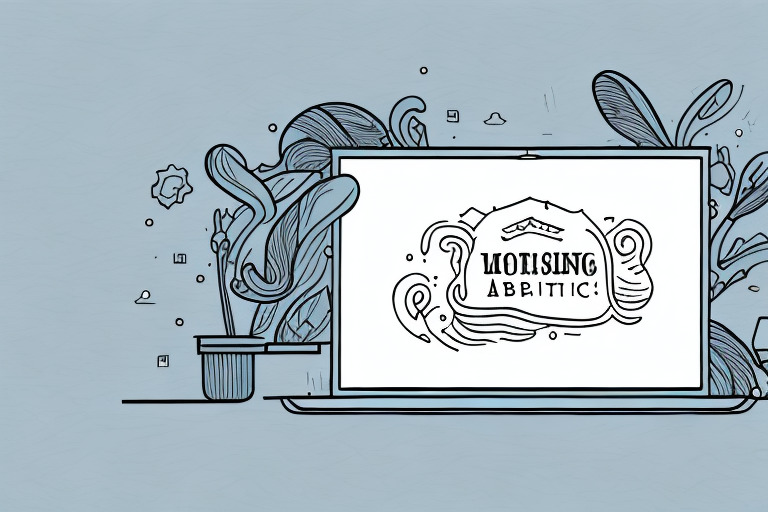Are you having trouble achieving a good night’s sleep? Poor quality of sleep can lead to a wide range of symptoms and health risks. You deserve restful and restorative sleep and you can train yourself to achieve it. This article will discuss some strategies for getting better quality sleep, so you can wake up feeling refreshed and energized.
Benefits of Quality Sleep
Fewer than 7 hours or more than 9 hours of sleep per night can be detrimental to both your physical and mental wellbeing. Studies have shown that individuals who consistently receive 7 to 9 hours of quality sleep experience health benefits such as:
- Improved mood and cognitive functioning
- Reduced risk of physical and mental illnesses
- Better memory, concentration, and energy levels
- Decreased likelihood of developing depression
In addition to the physical and mental health benefits, quality sleep can also help to improve your overall quality of life. Studies have shown that individuals who get enough quality sleep are more productive, have better relationships, and are more likely to make healthier lifestyle choices.
Understanding the Sleep Cycle
Before you can start improving the quality of your sleep, it’s important to understand the various stages of the sleep cycle. Sleep is broken down into two broad categories: rapid eye movement (REM) and non-rapid eye movement (NREM). NREM sleep is further divided into three stages: light sleep, intermediate sleep, and deep sleep. During deep sleep, growth hormones are released and you will experience feelings of restfulness and rejuvenation.
REM sleep is the stage of sleep when most dreaming occurs. It is characterized by rapid eye movements, increased brain activity, and increased heart rate. During REM sleep, the body is essentially paralyzed, which prevents you from acting out your dreams. REM sleep is important for learning and memory consolidation, and it is thought to play a role in emotional regulation.
Bedtime Rituals to Improve Sleep Quality
Engaging in consistent bedtime rituals can help prepare the body and mind for sleep. By introducing a few changes to your evening routine, you can relax your body and drift off to dreamland with ease. Some suggestions include:
- Going to bed and waking up at the same time.
- Creating an environment conducive to quality sleep through adjustments like dimming the lights, turning off electronics, and so on.
- Cutting out screen time an hour before bed.
- Making sure your bedroom is comfortable and not too hot or cold.
- Avoiding exercising before bedtime.
- Soaking in a warm bath before bed to reduce muscle tension.
In addition to the above suggestions, it is also important to practice relaxation techniques before bed. This can include deep breathing exercises, progressive muscle relaxation, or guided imagery. Taking the time to relax and clear your mind can help you drift off to sleep more easily.
Natural Remedies for Better Sleep
Other natural remedies can help you drift off to dreamland without turning to over-the-counter drugs. You may want to consider adding any of the following items to your bedtime ritual:
- Herbal teas such as chamomile, lavender, and valerian.
- Supplemental sources of tryptophan that can help increase melatonin production.
- Essential oils such as lavender and bergamot applied directly to your skin or added to a diffuser.
- Meditation and yoga practices that help reduce anxiety and encourage relaxation.
- Listening to relaxing music or a guided mindfulness program.
In addition to these natural remedies, it is important to create a comfortable sleep environment. Make sure your bedroom is dark, quiet, and at a comfortable temperature. Consider investing in blackout curtains, a white noise machine, or a fan to help you create the perfect sleep environment.
How to Reduce Stress to Promote Better Sleep
Stress is one of the most common causes of insomnia, so reducing it can go a long way toward improving sleep quality. Taking some time each day to release stress can help you fall asleep more easily. Some suggestions include:
- Writing to record your thoughts and emotions in a journal before bedtime.
- Exercising during the day for 30 minutes or longer each day.
- Spending at least 10 minutes each day doing deep breathing and relaxation exercises.
- Setting realistic goals and limits for yourself throughout the day.
- Releasing negative emotions such as anger through positive channels like art or music.
Making Lifestyle Changes to Improve Sleep Quality
Your daily habits have a major impact on the quality of your sleep. It’s important to assess your lifestyle and make changes that will lead to better rest. Consider the following lifestyle changes:
- Choosing foods that have a calming effect on the nervous system, such as oatmeal, yogurt, cherries, almonds, walnuts, and salmon.
- Limiting caffeine consumption to earlier in the day. Caffeine should be avoided 4-6 hours before bedtime.
- Avoiding eating large meals close to bedtime, as well as heavy snacks..
- Exercising more often (but not too close to bedtime).
Enhancing Your Sleep Environment
In addition to lifestyle changes, it’s also important to make your sleeping environment as comfortable as possible. This means that your room should be quiet, dark, and at a comfortable temperature. Consider the following tips for improving the quality of your environment:
- Keeping your room dark with blackout curtains or eye shades.
- Using earplugs or a sound machine to reduce noise disturbance.
- Investing in a comfortable mattress and pillow that promote alignment.
Foods That Promote Quality Sleep
Certain foods have also been known to promote sleep, as they contain substances that cause drowsiness. These include foods with high amounts of carbohydrates, fatty acids, magnesium, phosphorus, tryptophan, amino acids, and vitamins B6 and B12. Some suggested foods are almonds, chickpeas, white rice, tuna, turkey, salmon, oats, cottage cheese, eggs, hazelnuts, and bananas.
Avoiding Stimulants Before Bedtime
In order for your body to go into its natural sleep cycle, it needs to cool down in temperature. This process is accelerated by avoiding stimulants before bedtime such as nicotine, caffeine, alcohol, medications that contain stimulants like Adderall or Ritalin, and even exercise. Just be sure to avoid these items at least 4 hours before bedtime.
Avoiding Alcohol and Caffeine To Get Better Rest
Alcohol can have a sedative effect in the beginning stages of consumption but will wake you up during the second half of your sleep cycle due to its stimulating effects. As mentioned earlier, it’s a good idea to limit or avoid caffeine consumption in the evening hours. Caffeine acts as a stimulant which can hinder your ability to fall asleep and remain asleep throughout the night.
Over-the-Counter and Prescription Medications for Insomnia
Although it is best to naturally improve your quality of sleep through lifestyle changes and remedies, there are also over-the-counter (OTC) and prescription medications available if needed. OTC medications such as diphenhydramine hydrochloride (unisom) help induce drowsiness while prescription medications like zolpidem (ambien) are stronger and must be managed carefully. It’s important to consult with your physician before taking any medications for sleep as they can have side effects and interact with other medications.
Common Myths about Sleeping Better
It’s important to be aware of some common myths about sleeping better. For example, sleeping away from home can actually exacerbate insomnia because it disrupts regular sleeping habits. It’s also not true that sleeping with pets can be beneficial—pets can disrupt quality sleeping patterns with their movement and noise. And although screens can be distracting, it is not true that any amount of time spent using screens disrupts sleep quality—however they should still be avoided close to bedtime.




